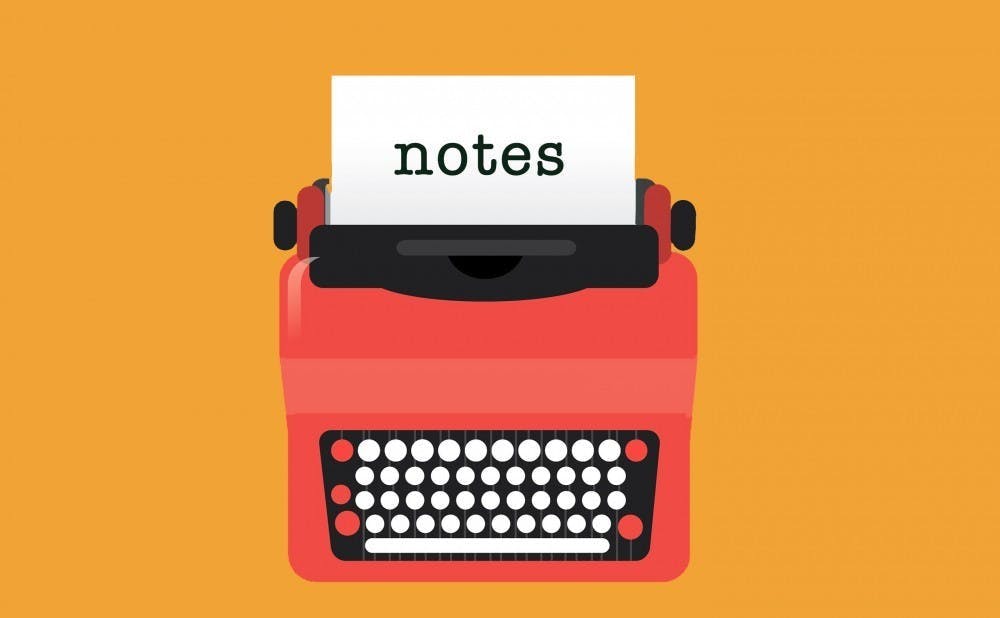My sophomore year, I had an existential crisis. Instead of going to CAPS, I chose to pester my poor friends with the soul-searching, philosophically cliché but perpetual question of humanity: “What is the purpose of your life?” Turned out they happened to be my friends for a reason, as almost all of them seriously considered this daunting question and gave me their most solemn answers.
“I want to start a family, have kids and be able to support them comfortably.”
“I want to start my own company and continue to push the boundaries of human innovation.”
“I want to be a useful person to society. Make an impact in the lives of those around me and even beyond.”
What was to me the most unremarkable answer at the time, but what was in fact the most remarkable according to my memory, was this: “I just want to be happy.”
I was shocked by this response, outraged even. Given the platform and opportunities we have available at our hand, how could one only think about one’s own happiness? It seemed very selfish and unambitious. I felt that I would sacrifice my happiness any day for many other things — family, glory, fame, a better world and — though it had been extremely difficult to admit this to myself, let alone here in my staff note that is to be released to the world — perhaps for money too.
It’s nothing I haven’t done before. I certainly sacrificed my happiness in the last two years of my high school to ensure that I was the best in everything I did, so that my parents would be prouder than any other parent in the room at my graduation, and I could bathe in the culminating satisfaction of achievement that gave a much better high than mundane, everyday happiness. Or so I thought.
I was still doing it at Duke often, sacrificing my happiness to get those A’s in my double major and certificate, that internship at the most prestigious organization or this research position with the most renowned professor. I even sacrificed sleep, which I found is a determining factor for my happiness, to try to get into particular social groups, where hanging out with people felt more like homework than a pastime.
But it would all be worth it, right? After all, it is the preaching of Thomas Jefferson when he wrote those historical lines into the Constitution, the moral lesson of the classic American-Dream movie “The Pursuit of Happyness” and the value system that my Asian parents so ingrained in me ever since my youth — hard work shall always prevail. And I was this tenet’s most fervent believer.
Until I realized that hard work doesn’t always prevail, perhaps beaten by harder work sometimes. Until the effect of delayed gratification started to wear off, and I only felt relief when I got back those A’s and internship offers instead of triumph. Until COVID hit, and “the future” seemed more contrived of an idea than ever.
Facing the many forms of grief in the beginning of quarantine life, I reverted to my default coping mechanisms and overcompensated for my losses by overworking myself, so that I could fake-feel some sense of control over life that is but an embryo and direction in a world that is but chaos. Of course, it didn’t quite work.
I started to think more and more often about my philosophical quest in sophomore year and the answer about happiness. When was the last time I was genuinely happy? Most recently, it had been my dad’s birthday where we decided to ransack the ready-made section at a local grocery store during its last-half-hour of operation. Before that, it was when my study-abroad cohort visited a secluded farm in Normandy where the duck confit was sublime and the horses probably needed brushing. In both cases, there was no honor, no applause, no shadow of the future weighing on my consciousness. Just a pure, peaceful gratitude for being alive.
Gradually, I’ve come to notice that, though not as intensively, this joy can also be experienced in the small things of life. I felt it when I was forced to take up cooking and baking, just like everybody else, and was able to present surprisingly delicious dishes to my family. I felt it when I had to use hiking as an excuse to get some fresh air and be reminded that there was still a world existing out of my house, and was delighted to discover the beauty of wildflowers and yellowed grass. I also felt it when I finally had time on Friday night to read the many books that had stayed on my list for two years, not having to worry about missing out on some fun-sounding parties that only turned out to be mistakes.
Charlie Sheen once said, “Life all comes down to a few moments.” I used to agree with this quote, but now I think it is too simplistic of a conclusion. If asked again, would I still choose to sacrifice my small joys for some larger-than-life promises? I don’t know. But hey, maybe it really takes an apocalypse for us to figure out how to live this life.
Get The Chronicle straight to your inbox
Sign up for our weekly newsletter. Cancel at any time.

